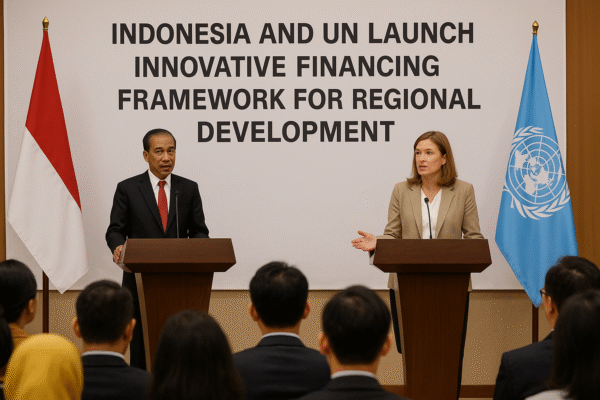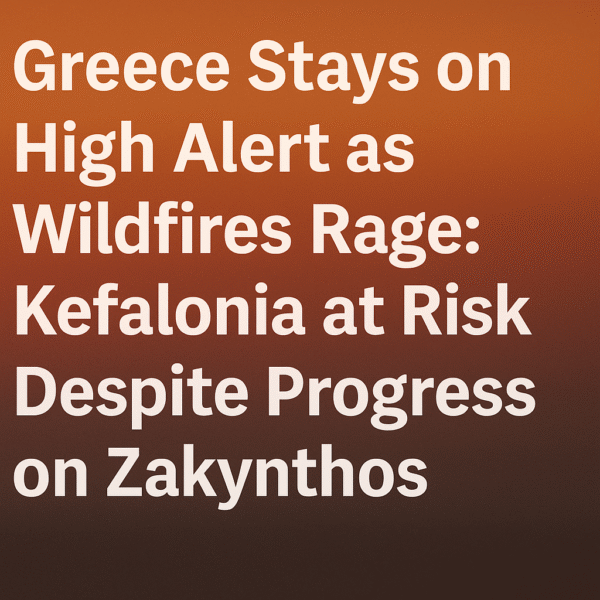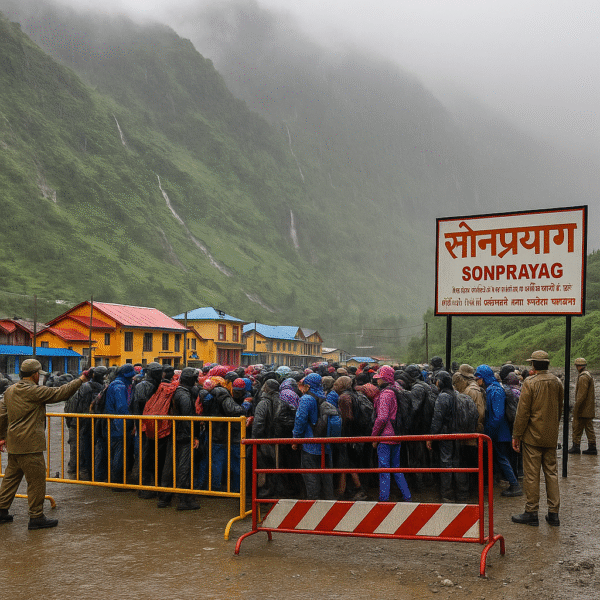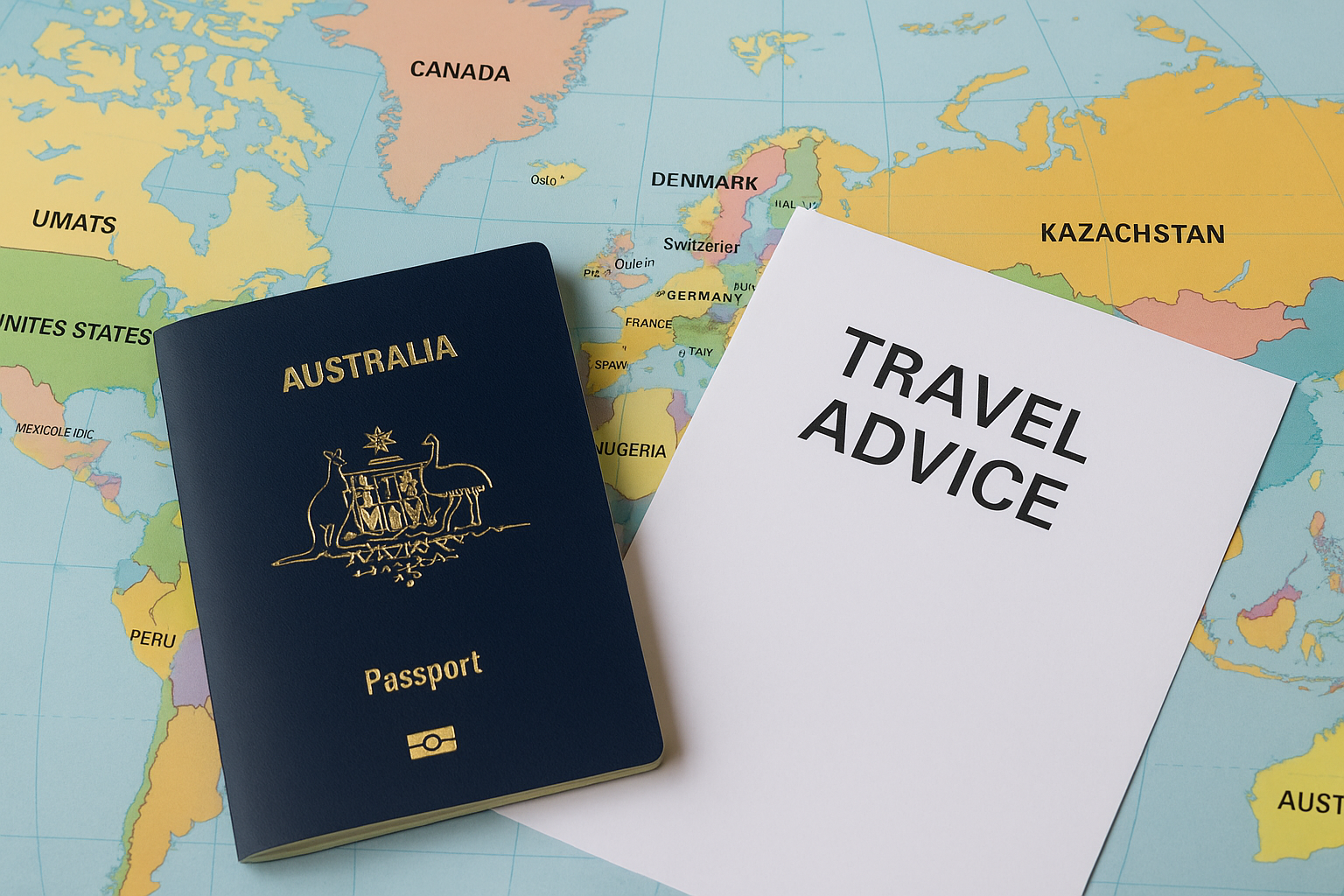Australia Issues 2025 Travel Advisory Updates for Switzerland, Canada, US, Denmark, Kazakhstan, and More Amid Global Safety Concerns
As international travel rebounds in 2025, the Australian government has released comprehensive updates to its global travel advisories, with new alerts for several major destinations. Countries including Switzerland, Canada, Denmark, New Zealand, the United States, and Kazakhstan have been listed in the latest advisory, each with tailored warnings to help Australian travellers prepare for a safe journey abroad. These updates address risks such as large-scale events, natural disasters, terrorism threats, civil unrest, and petty crime, ensuring that travellers stay informed amid rising global mobility.
The inclusion of Switzerland is particularly timely, coinciding with the upcoming UEFA Women’s Euro 2025 tournament, while updates for Canada, the US, and others highlight seasonal hazards, protest-related disruptions, and evolving visa and entry rules.
Switzerland: UEFA Euro 2025 Sparks Precautionary Measures
Switzerland remains a low-risk destination, but the surge of international visitors expected for the UEFA Women’s Euro 2025 (2–27 July) has prompted added vigilance. With games taking place across cities like Zurich, Basel, and Geneva, Australian authorities warn of increased crowd density, particularly around stadiums and public transport hubs.
The advisory encourages tourists to remain alert in crowded areas, secure personal belongings, and be wary of pickpocketing—especially in fan zones and train stations. Visitors heading to the Alps are reminded of seasonal risks such as sudden weather changes, avalanches, and flash floods. The Swiss government recommends checking real-time weather alerts and only hiking on marked trails.
Canada: Wildfire Season Impacts Air Quality and Travel Flow
While Canada retains a “normal safety precautions” rating, Australian travellers are being alerted to the 2025 wildfire season, particularly in British Columbia, Alberta, and parts of Ontario and Quebec. Widespread fires are affecting regional travel, outdoor activities, and air quality.
Tourists are urged to monitor local news and apps like Environment Canada for updates on air pollution and evacuation zones. Travellers flying into Canada should also ensure they have an Electronic Travel Authorisation (eTA) completed, as this remains mandatory for air arrivals.
Denmark: Significant Terrorism Risk Level Prompts Heightened Awareness
Australia continues to advise standard safety precautions for Denmark, but it also flags a “significant” terrorism threat level (4 out of 5). Public venues such as tourist landmarks, restaurants, train stations, and city centres in Copenhagen and Aarhus are considered higher risk.
Travelers are encouraged to avoid unattended baggage, stay alert to surroundings, and comply with local police protocols. Common petty crimes, including pickpocketing, are also reported in busy urban areas, particularly around the Tivoli Gardens and Nyhavn waterfront.
New Zealand: Preparedness for Earthquakes and Tsunamis
New Zealand remains a popular and generally safe destination for Australians, yet natural hazards such as earthquakes, volcanic activity, and tsunamis remain a constant concern. The advisory urges all visitors to familiarize themselves with GeoNet alerts and regional warning systems.
Earthquake safety drills and signage are prominent in Wellington and Christchurch, where seismic activity is common. Coastal cities like Auckland, Tauranga, and Napier carry tsunami evacuation zones—marked clearly for tourists. Travellers are encouraged to download local emergency apps and register with SmartTraveller.gov.au for real-time updates.
United States: Protests and Entry Regulations in Focus
Australia’s travel advisory for the United States remains unchanged but includes new emphasis on civil unrest, gun violence, and entry restrictions. While most areas are safe, travellers are warned to avoid demonstrations, which may escalate unpredictably, especially in cities like Los Angeles, Chicago, New York, and Washington D.C.
The US maintains complex border control measures. Even with a valid ESTA (Electronic System for Travel Authorization) or visa, entry is not guaranteed. Australian visitors are advised to ensure compliance with all requirements, declare all items truthfully, and have proof of accommodation and return travel plans ready for immigration officers.
Kazakhstan: Eased Travel Level but Continued Terror Risk
In a notable revision, Kazakhstan’s travel advisory has been downgraded to “exercise normal safety precautions.” This reflects improved overall stability, though past events such as the 2022 Almaty protests and regional terror incidents remain in memory.
Kazakhstan offers visa-free travel for Australian citizens for short stays. Travellers are still encouraged to be cautious in crowded spaces like public squares, metro stations, and near government buildings. Monitoring local media and registering with embassies is recommended, especially when travelling to remote or border regions.
Safe Travels Begin with Informed Decisions
These latest updates from Australia’s Department of Foreign Affairs and Trade (DFAT) reflect the evolving global travel environment in 2025. While all listed destinations—Switzerland, Canada, Denmark, New Zealand, the US, and Kazakhstan—remain open and welcoming to tourists, the need for vigilant and informed travel has never been more important.
Australian travellers are encouraged to:
- Register with SmartTraveller.gov.au
- Subscribe to real-time alerts for their destinations
- Carry comprehensive travel insurance
- Follow all local laws and safety protocols
- Monitor weather and political developments
With proper preparation, global adventures can remain enriching and safe—whether enjoying the alpine beauty of Switzerland, the natural wonders of New Zealand, or the cultural landmarks of Denmark and the US.
For more travel news like this, keep reading Global Travel Wire
















